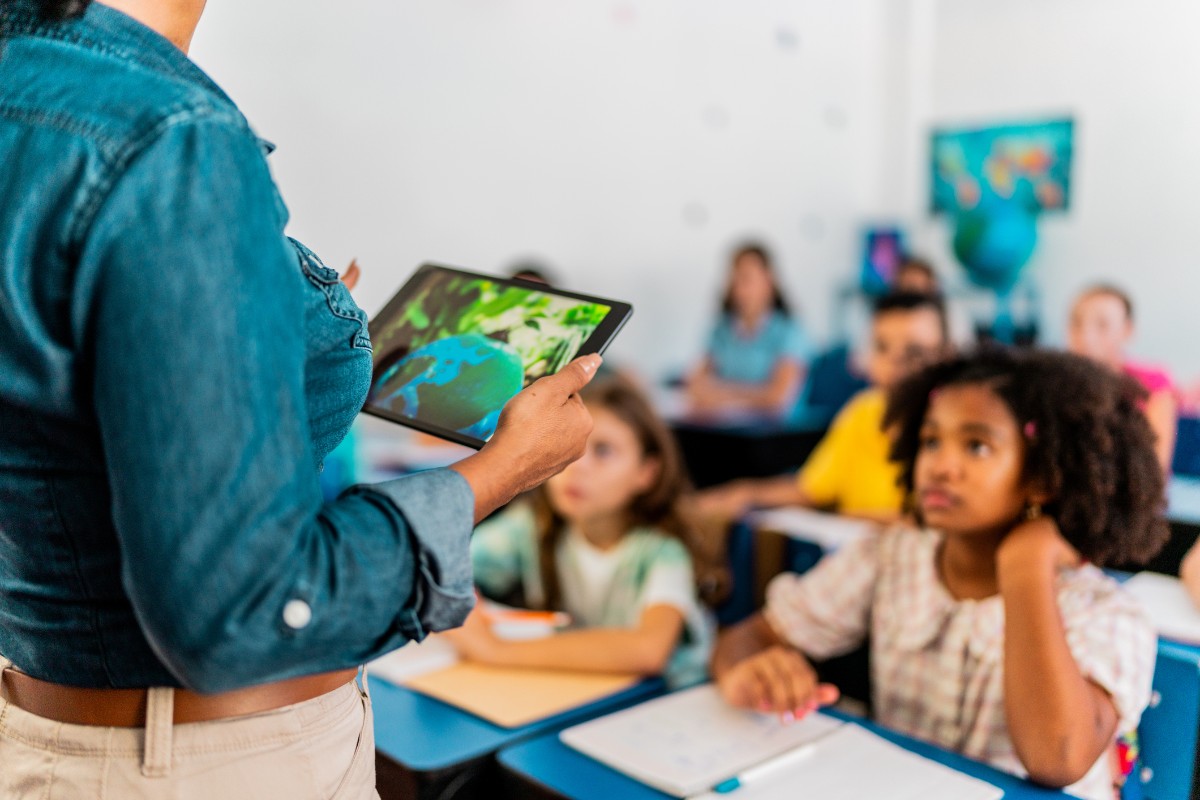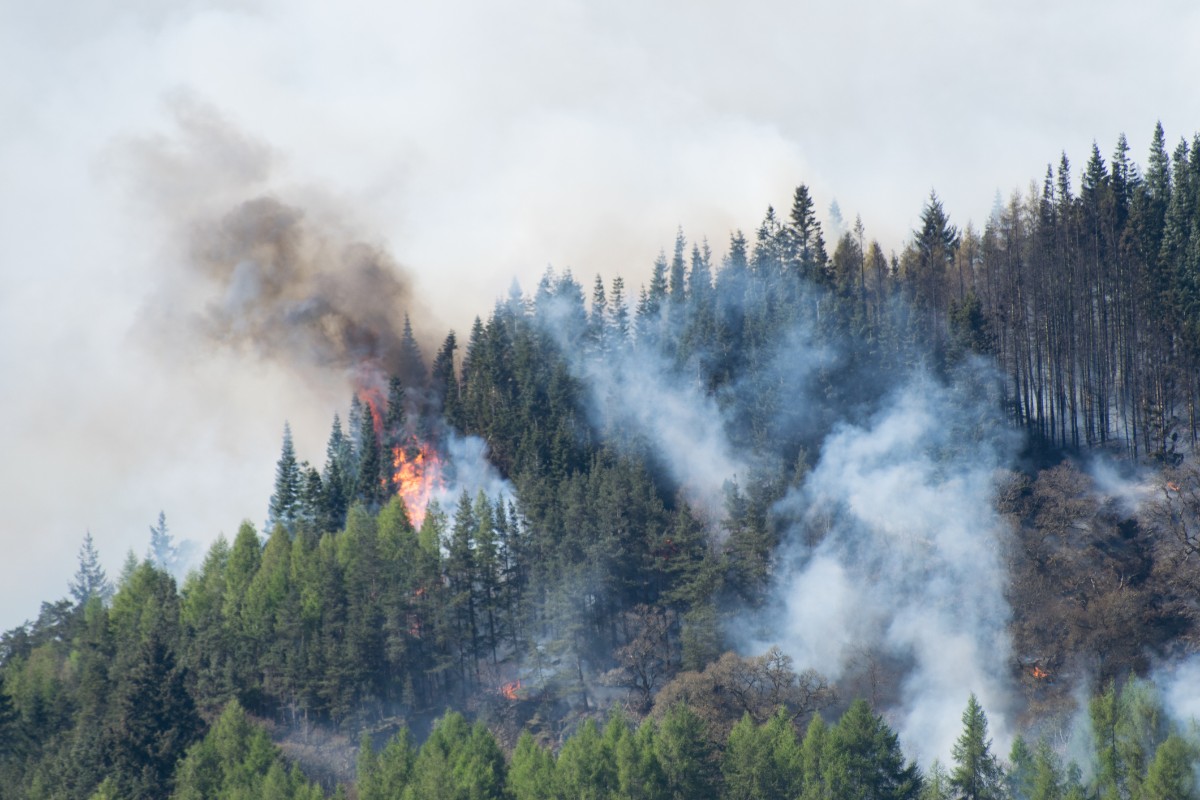As global temperatures rise, ecosystems face increasing disruptions and the growing need for sustainability practices becomes more apparent, climate change education crucially empowers students to better understand the world around them and offers actionable solutions.
New research from TC’s Center for Sustainable Futures (CSF) reveals that educators need support now more than ever when it comes to teaching climate change education amid escalating challenges, a central theme at this year’s annual Midwinter Climate Institute. The research draws on critical data from the research practice partnership CSF holds with New York City Public Schools (NYCPS).
“This study underscores that education is indeed a climate solution and should be a climate priority,” shares Meredith McDermott, Chief Sustainability & Decarbonization Officer at NYC Public Schools. “The evolution for which we advocate within NYC Public Schools is centered around support for teachers with maximum benefit and impact for students. Our partnership with Teachers College has enlightened us to not only support cross-curricular and interdisciplinary classroom instruction but also to foster the discourse, diverse perspectives, creative engagement and collective action to truly support the whole educator and student.”
“Confronting the climate crisis requires collective action and support,” says TC’s Oren Pizmony-Levy, Associate Professor of International and Comparative Education and Founding Director of the Center for Sustainable Futures. “Climate change education is vital for equipping future generations to take meaningful climate action, with educators at the forefront of this movement.”
Here’s what you need to know.
Climate Change Education is Growing, But Faces Challenges.

(Photo: iStock)
Despite educators teaching climate change, barriers still persist. Often, educators might feel CCE doesn’t align with their subject matter, while others lack access to teaching materials or may feel unprepared or hesitant about exploring CCE.
“Emotions can act as both a driver and a barrier—teachers who feel a strong personal connection to climate change may be more motivated to integrate it into their teaching, while those experiencing climate anxiety, frustration, or a sense of helplessness may avoid the topic altogether,” notes Pizmony-Levy and his co-author, Sara Alice Wagner, a master's student in the Climate and Society program at Columbia Climate School, whose research explores the intersections of climate impacts, climate action and education. “By addressing the affective dimensions of climate education, we can better equip educators with strategies to navigate their own emotions while fostering students' engagement with climate issues.”
Moreover, socio-political contexts can impact climate change education integration. “When climate change is seen as controversial, teachers often see it as a barrier,” the researchers add. “Understanding these challenges can help sustain curricula in politically sensitive settings.”
Teachers Need Support.

(Photo: iStock)
Educators should not only teach students about climate change, but inform them about the science behind it along with actionable solutions. To do this, collective community support and encouragement is imperative.
Pizmony-Levy notes that recent initiatives across New York City Public Schools, such as professional development and city-wide campaigns, provide educators with the tools and knowledge needed to incorporate climate change into their lessons. As more teachers embrace CCE, they are likely to share ideas and resources, creating a ripple effect that enhances overall preparedness. Additionally, increased student activism and interest in climate issues motivate educators to prioritize climate education.
Understanding the Impact of Climate Change

(Photo: iStock)
While many educators are concerned about the climate crisis, some carry misconceptions about its causes. "One of those key knowledge gaps is the misinformed belief that “natural causes are responsible for climate change alone," which is a dangerous misconception,” write Pizmony-Levy and colleagues, noting the data that demonstrates otherwise. “Teachers’ knowledge of climate change is essential for building their confidence in teaching the topic and ensuring high-quality instruction on its impacts and solutions."
To Teach Climate Change Education Effectively, Explore Creative Strategies

(Photo: iStock)
To teach climate change education effectively, educators should adopt an innovative, interdisciplinary approach. Pizmony-Levy suggests enhancing climate literacy by integrating strategies from social studies, humanities and the creative arts.
Additional effective strategies may include open discussions, student collaboration with scientists and community sustainability projects, as research indicates that holistic, experiential learning “significantly deepens students’ understanding of climate issues, with student-centered methods producing the best results,” according to Environmental Education Research.
Teacher Preparedness Is Crucial.

(Photo: iStock)
Educators need proper training and resources to confidently teach climate change education. Pizmony-Levy’s research shows that 80 percent of teachers find online portals, like “Subject to Climate,” helpful for accessing climate curricula. However, one in five teachers who don’t teach climate change cite lack of preparedness as a major barrier.
Continuous professional development opportunities are also key to effectively understanding and deepening climate literacy, as shown in many studies over the years. These opportunities help educators stay current with evolving climate science, pedagogical strategies and ways to navigate controversial or complex classroom discussions. “Teachers who feel knowledgeable about climate change are more likely to convey scientific consensus and face fewer teaching barriers,” writes the team.
